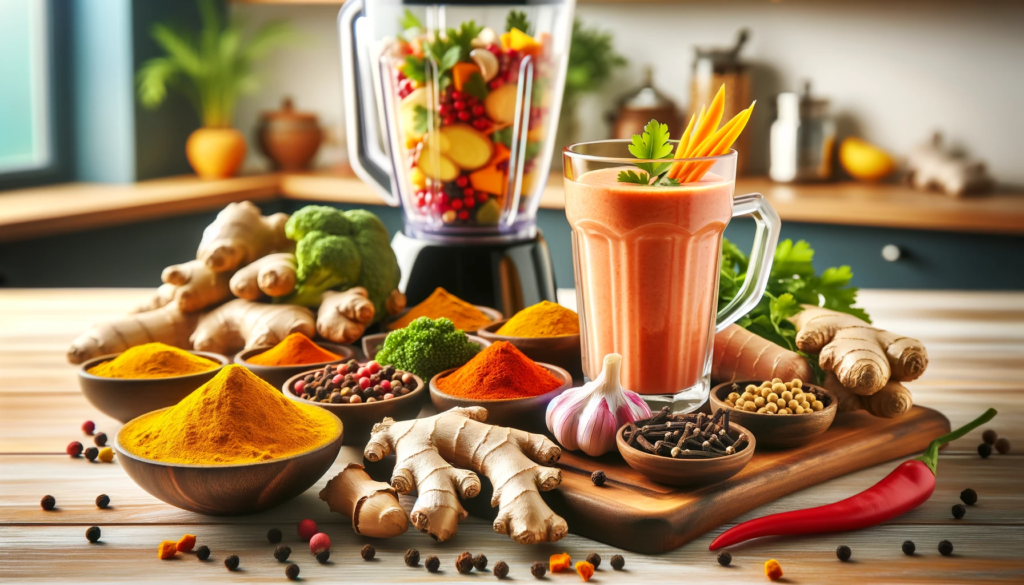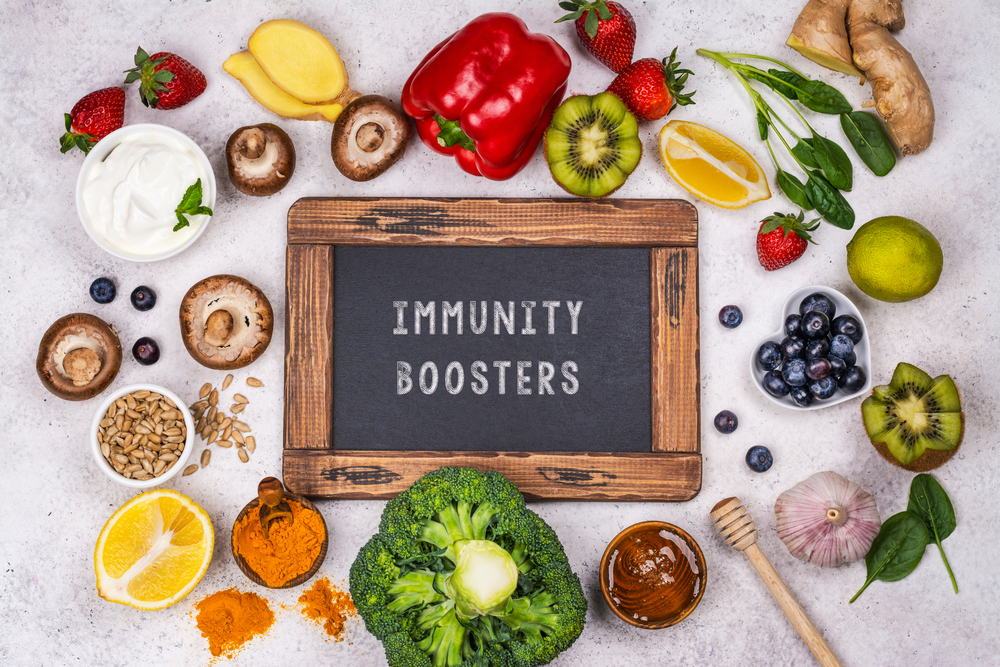Spices have always been at the heart of culinary innovation, with African spices, in particular, offering a remarkable array of health benefits that reach well beyond their culinary uses. As we delve into the ways these aromatic companions can enhance not only our food but also our health, particularly in boosting the immune system, we discover a world of vibrant flavors and healing properties intrinsic to the African continent.
Introduction to Immune-Boosting Properties of African Spices
African spices have been used for centuries not only to add flavor to dishes but also for their medicinal properties. From Berbere to Ginger, the continent is rich with botanicals known for their immune-boosting qualities. In this article, we will explore how these spices contribute to health and well-being, guiding you through their peculiarities and usage for bolstering your body’s defenses.
Key African Spices for Immune Support
Berbere and Its Antioxidant Properties
Berbere, a classic Ethiopian spice blend, is rich in antioxidants due to its combination of components like fenugreek, chili peppers, garlic, and other warming spices. These ingredients can protect the body’s cells from oxidative stress, which plays a role in many chronic diseases and can weaken immune defenses over time. Incorporating Berbere into one’s diet may help reduce inflammation and enhance the body’s ability to fight infections.
The Anti-Inflammatory Effects of Turmeric
Turmeric is famed for its vibrant color and distinctive flavor and curcumin content, which has significant anti-inflammatory properties. This component of turmeric helps modulate the immune system, offering potential benefits in fighting off disease-causing agents. Incorporating turmeric in meals can play a part in maintaining a responsive and balanced immune system.

Ginger’s Role in Immune Function
Ginger, with its sharp and pungent flavor, is a staple in African and global cuisines alike. Beyond its taste, ginger contains gingerol, a substance with powerful medicinal properties including enhancing immune response. Ginger aids in combating nausea, reducing muscle pain, and may even have cholesterol-lowering effects. Its ability to bolster the immune response makes it an invaluable spice for health-focused cooking.
Garlic’s Antimicrobial and Antiviral Qualities
Garlic’s pungent aroma is not its only strong suit; it is also a powerful ally against infections due to its antimicrobial and antiviral properties. Allicin, the main active component in garlic, has been shown to boost the disease-fighting response of white blood cells in the body when they encounter viruses, such as those that cause the common cold or flu. Consistent consumption of garlic may fortify the immune system, helping to stave off illness.
Incorporating African Spices into Your Diet for Immunity
Practical Tips for Using These Spices in Everyday Meals
African spices can be easily integrated into your diet through creative and thoughtful preparation of meals. Berbere can elevate stews and marinades, while turmeric adds earthiness to curries and rice dishes. Ginger’s versatility allows it to enhance both sweet and savory recipes, such as stir-fries and smoothies. Garlic’s unmistakable flavor can be enjoyed in soups, sauces, and dressings, contributing to a robust immune system while tantalizing the taste buds.
Simple and Healthy Recipes with Immune-Boosting Spices
Delve into the healthful potential of African spices with easy-to-follow recipes designed to reinforce your immune system. Imagine a warm bowl of lentil soup seasoned with Berbere, a turmeric-infused golden milk for calming evenings, ginger-enhanced vegetable stir-fry for a zesty kick, or a garlic-rich chickpea salad for a nutritious lunch. Each recipe not only promises delightful tastes but also a step toward bolstered immunity.
Understanding the Science Behind Spices and Immunity
How Spices Can Enhance Immune Response
Spices can work as more than just flavor enhancers – they are imbued with organic compounds that interact with the human immune system in complex ways. These compounds, from antioxidants to anti-inflammatories, can interact with immune pathways to help protect the body from infections. The stimulation of immune cells by certain spice-derived compounds can translate into increased readiness to combat pathogens.
The Balance of Diet and Immune Health
A well-balanced diet enriched with a variety of spices can contribute to a well-functioning immune system. Antioxidants from spices, alongside vitamins and minerals from other food groups, work together to create a synergistic effect that fortifies the body’s natural defenses. Embracing diversity in your diet, including the regular intake of immune-boosting spices, can be key to maintaining optimal health.

Precautions and Best Practices
When to Use and Avoid Certain Spices
While spices offer numerous health benefits, it’s important to use them judiciously. Some individuals may be sensitive to certain spices or may experience adverse effects if consumed in excessive quantities. It’s crucial to be mindful of portions and to be aware of your body’s reactions. Those with medical conditions or pregnant women should consult with a healthcare professional before making significant dietary changes with high quantities of spices.
Consulting Healthcare Providers About Dietary Changes
Prior to embarking on any major dietary overhaul that involves the incorporation of immune-boosting spices, it’s wise to seek advice from healthcare professionals. This ensures that any changes align with your health goals and medical needs. A tailored approach can be developed that respects both the value of spices in enhancing immunity and any unique health considerations you may have.
The Broader Impact of Diet on Health
Integrating Spices with Overall Healthy Living Strategies
A diet rich in spices from the African continent is a compelling component of broader healthy living strategies. When combined with regular physical activity, adequate sleep, stress management, and overall nutrient-rich food consumption, spices can substantially contribute to comprehensive wellness. A holistic approach to health, with African spices as key players, can lead to improved immune function and a greater sense of vitality.
FAQs on African Spices and Immune Health
Can African spices cure diseases?
While African spices have immune-boosting properties and can support the body’s natural defenses, they should not be thought of as a cure for diseases. It’s important to follow conventional medical treatments and advice for any health condition, and consider spices as a complementary approach to a well-rounded, healthy lifestyle.
How often should I consume these spices?
Including a variety of spices in your regular diet, without over-relying on any single one, can provide diverse health benefits. However, moderation is crucial. Spices should be consumed in amounts typically used in cooking – a sprinkle in your soup, a dash in your stew, or a pinch in your tea should suffice to reap their immune-boosting rewards.
Are these spices safe for everyone?
Most people can safely enjoy the flavor and health benefits of African spices when used in culinary amounts. That said, individuals with certain health conditions, allergies, or those on specific medications should consult with a medical professional before making any significant changes to their diet, to ensure the spices do not interfere with their health regimen.
